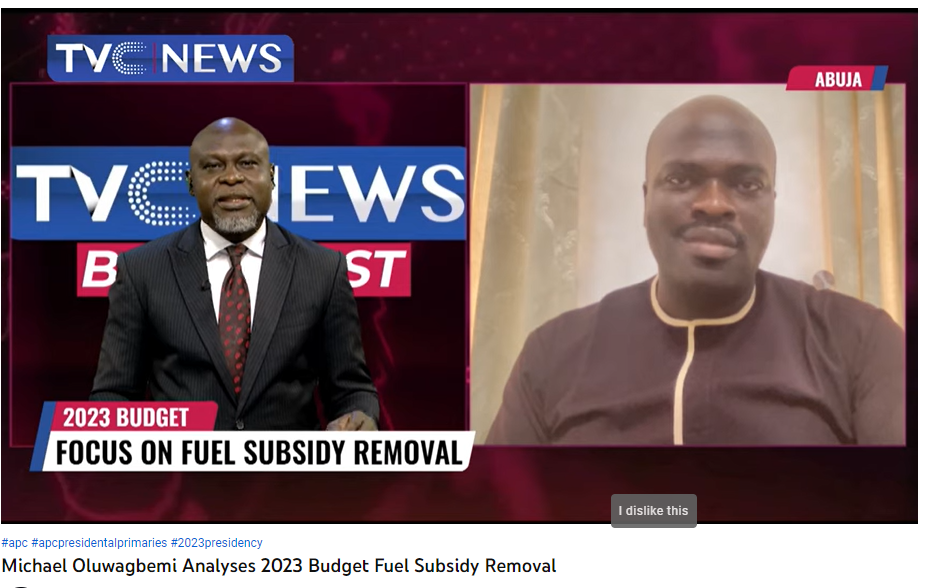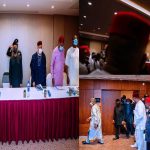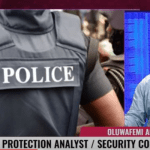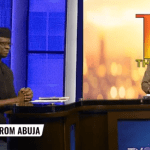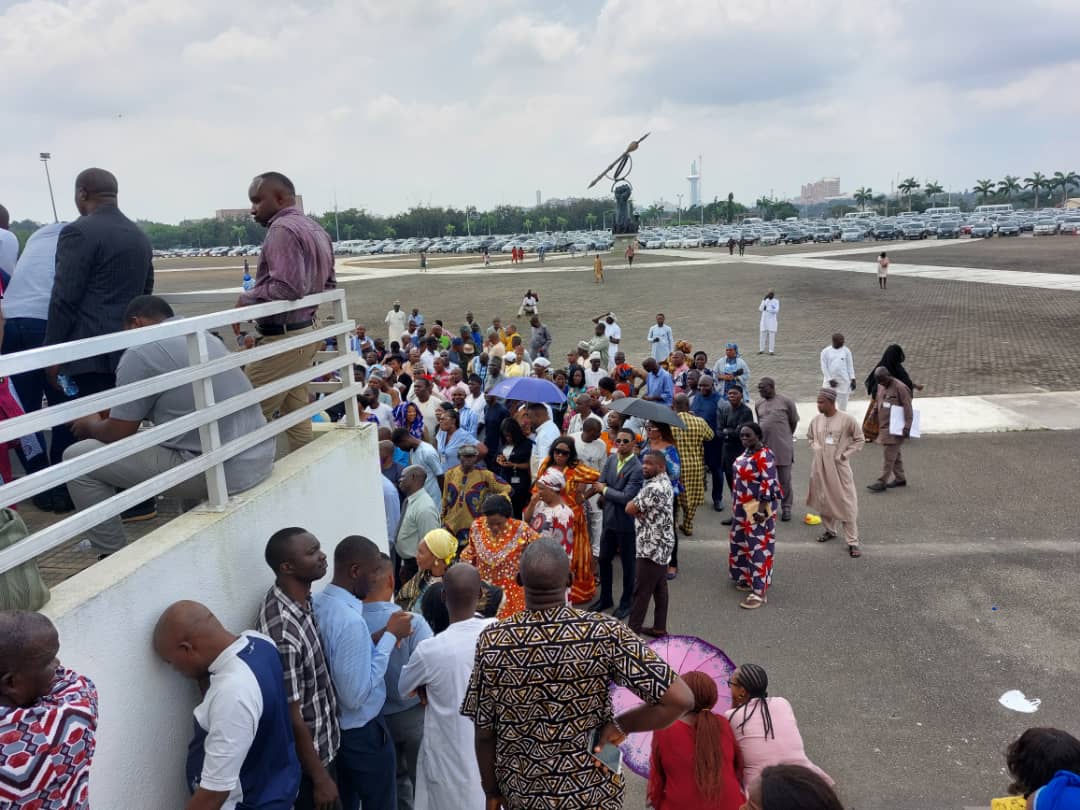Subsidy as currently practiced in Nigeria is a consumption subsidy which is a magnet for Corruption.
Public Sector analyst, Michael Oluwagbemi, disclosed this while speaking on TVC News’s Breakfast Show with Mike Okwoche on the decision by President Muhammadu Buhari that subsidy will end in 2023.
Mr Oluwagbemi said the announcement by the President during his presentation of the 2023 Budget estimates to the National Assembly though a good decision should have been made much earlier and through consultations.
He added that such consultations should include the National Assembly, Civil Societies Organisations, Stakeholders in the Oil and Gas Sector and the Executive arm of Government.
He posited that consultations is needed before subsidy is removed because its removal now would have a much bigger impact than if it was done much earlier like in the period between 2015 and 2017 when the government was much popular and the nation was having an Economic crisis.
He disclosed that the removal of subsidy which is a very sensible one is still being resisted in the National Assembly by some Senators.
According to him, Fuel, Energy and all Other types of Subsidy only benefits the elites who are not the targets but the poor who will not benefit.
He also called for more consultations to bring an end to all consumption subsidies in the Country and the diversion of the Trillions of Naira to Other more critical Sectors.
Read excerpts below ….
Very interesting question. The point I think always is not to miss out the reality that for a very long time, as a country and as a people, we have been used to having our fuel, our energy costs subsidized. So whenever you’re removing fuel subsidies, it’s not just an economic decision, it’s a social change decision. Mentality attenuation or some kind of adjustment is required from the overall population. And of course there’s going to be winners and losers. So naturally speaking, there has to be what we call change management and the government of the day as a duty. So when people use the 2012 analogy, they also do not also remember that there was a whiff of ongoing corruption.
That was after the 2011 election when subsidy rackets increased dramatically. When there were claims that failed, they were delivered to Niagara, never delivered, and funds from that were then used to fund the 2011 election. So when the President then tried to remove just immediately after his election in 2012, the force of city around his claim, the people basically said, no, you are beneficiary of these subsidies. Come after. Some of them are still even in court as we speak. So the wheat of corruption and racketeering around 2011 to 2012 also made that decision in 2012 quite almost impossible.
Aside from the fact that the government did a very poor job of change management. When you’re trying to remove something population have been used to for over 40 years, you cannot just do it overnight. There has to be a period of consultation, there has to be periods of engagement, the National Assembly has been carried along in this case, as we have in this year.
It is obvious to Nigerians that we cannot continue to sustain a 4,000,000,000,005 trillion Naira, almost 25% of our budget level of subsidy, when we are actually 50% of that budget is made from debt with deficit.
So it does not make mathematical or arithmetic sense. Nigeria sustained this bill over the last three to four years at an almost impossible pace. The President and indeed the nationally sensitized, and even though they are still giving some room to say, okay, we’re going to keep this for another six months, we’re going to give, some senators are insisting that it has to be all held on for another one year.
I think the right forum to debate for subsidy, I also think the right forum to this debate most of the socioeconomic issues in Nigeria should be the people’s house. These are not issues that are exclusively for the debate of the executive that has of course the national Mandate to execute, but does not have a national mandate to appropriate and to make public policy in terms of engaging the public to get their impact on feedback. That responsibility belongs to the legislature.
And I think that’s the right form which the President has directed that particular issue this year. And it should have been from the one so that we can have public hearings. We can have people provide their inputs. We can weigh the opinion of Nigerians and the legislature as the people’s house that has the responsibility for cooperation. Can then decide whether it wants to keep or it wants to remove the subsidy and how quickly it wants to do that.
Whether it wants to remove it very quickly. And what sectors of the economy will then benefit from the additional funding that is not going into subsidy. I personally think that the subsidies should have been removed much earlier when the prices of gasoline as well as the price of crude oil globally was quite much cheaper. So that gives Nigeria much more ability to absorb the shock. If you withdraw the subsidy as it is, you still are on a very big risk of riots and running inflation. So I believe that we have done this easily in 20 15, 20, 16, 20 17, when the government was much newer, much more popular, and also you have a very low price as well.
And of course at that time we also facing some economic crisis. I always used to say that never wasted crisis and we could have used that crisis to actually remove for subsidy and Nigerians would have been much more used to it. And we’ll have saved ourselves almost ten to 15 trillion Naira if you use the car, which I need more, maybe 20 trillion Naira since 2017. And that money would have been better spent on our infrastructure as well as our health and our education and those things that are the primary responsibilities of government. Not subsidizing the fuel that goes into our SUVs and our motor vehicles and trucks that are used and utilized mostly by the Elites.
So the regime of subsidy has been cleaned up quite a bit since 2015 to be fair to the government. But what we must recognize is that whenever you introduce the two types of subsidies, there’s production subsidy and there’s consumption subsidy, I call consumption subsidy lease subsidies, the kind of subsidy that distorts the market. So whenever you have consumption subsidy, the tendency is that folks will position themselves at the point of consumption and try to disaggregate or try to distort consumption so that they can benefit unusually from that kind of subsidy.
If it’s a subsidy that encourages laziness because it is born out of the laziness of the government to actually do its own work to determine who actually needs subsidies, that’s why you do consumption subsidy. And what we have in the petroleum sector, just like we have in the power sector for a long time and maybe reduced more recently and even what we have more so in the education sector. The issue that we’re currently tasked with is consumption subsidy is basically subsidy that is supposedly targeted at a wider population without doing a targeted job of determining who actually needs the subsidy and who doesn’t. So today, for example, if you have a motor vehicle, you have six motor vehicles in your partners, you actually benefit more from the Nigeria square subsidy than somebody who is working or is using public transport.
But in a real sense, the person is using public transport and is working, actually needs more of the subsidy because it’s poorer. But today the rich man in Nigeria with six vehicles. With six SUV. Some of them with 50 cars and their convoy. Is benefiting more from the fuel subsidy because he has more cars as well and is therefore benefiting more just in period of attempt from the subsidies that the federal government now consumption subsidy in that sense inherently is corruption because you are providing it for people who do not need it and who do not require it and who also have the will with how to cheat the system.
Because they have accountants, they have trucks to be able to track their petroleum across the border to go and sell and make unusual profits. They have the ability to corrupt the customs agents that consumption subsidies naturally creates incentives for corruption. And that is why consumption subsidy must be minimized to avoid distortion in any economy. So when you talk about the corruption that exists in the system of corruption, in the system of subsidy today in the petroleum sector, most of it actually will come from corruption. By wastefulness. That’s the first thing that we talked about. The second type of corruption is the corruption by racketeering, where Oil is actually brought into Nigeria.

